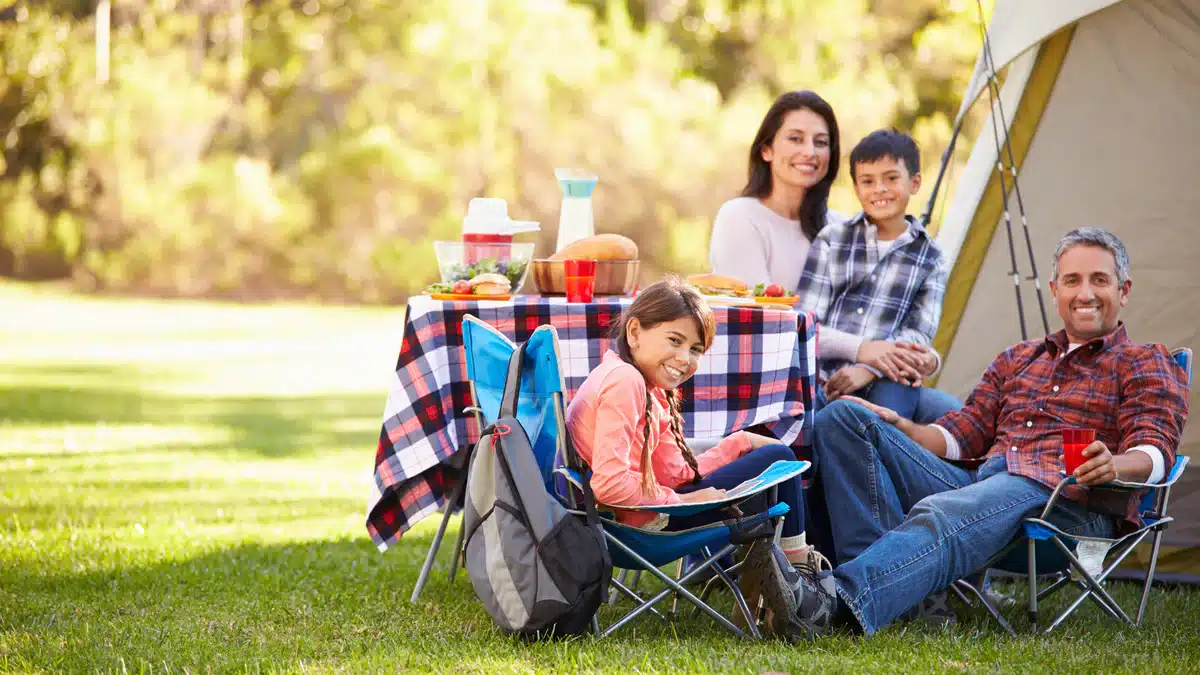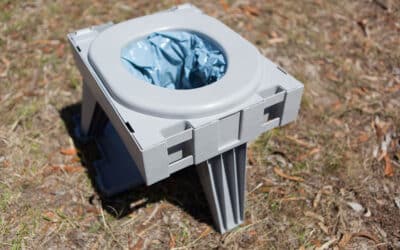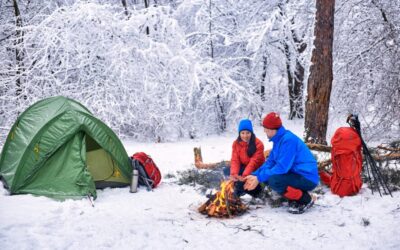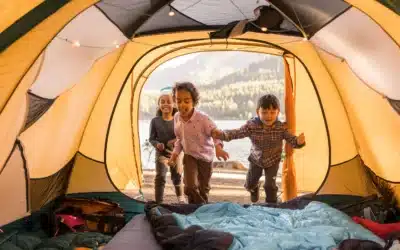Ten First-Time Family Camping Tips: Building a Love of the Outdoors
In the age of mobile devices, Wi-Fi, and anytime access to the internet, streaming programs, and YouTube, going on a family camping trip for the first time can be a tough sell for your children. Camping is a rite of passage for both parents and children, and remains one of the best family bonding activities in existence. But it’s a whole lot more than just choosing a top campground and hoping for the best.
But camping is an easy activity to botch. Parents often leap in unprepared, excited about the prospect of bonding with their children in the great outdoors, and end up with a disaster on their hands. Bad attitudes, ill-preparedness, and a lack of overall knowledge leads to frustration, arguments, and a bad trip.
Preventing that is largely on you as the parent, and with these tips, you can help ensure your camping experience is a getaway for the ages that will keep the kids asking for return trips.
Arrive Early
Be at your campsite as early as possible (setting up a tent in the dark is an absolute nightmare). If possible (or practical), send one parent to the campground before everyone else to scout it and take care of the initial tasks before the kids arrive. But make it job number one to be set up before dusk.
Do Your Research
Research the campground you’ll be staying at. Learn which amenities are available — swimming, playgrounds, hiking trails — and hype them up. Even a trip to the general store can be a life-changing experience on a campground. Get your kids excited, and encourage them to explore safely.
Have (or Learn) a Few Skills
You don’t have to be a rugged survivalist to impress your children, but you should have one or two good skills in your pocket. Are you handy with a pocket knife? Can you sniff out the secret trails that lead to a glorious waterfall? Do you know how to use a compass? Any of these skills can potentially be impressive when you’re out in the wilderness on your own.
Plan Fun Activities
While camping is often about relaxation, be sure to balance downtime with activities. A nice hike through a wooded area can be an adventure lasting several hours. Swimming, fishing, boating, or a variety of other activities provide day-long fun. Just be sure they’re age-appropriate and your kids can handle the physical effort necessary.
Practice
If you’re not a seasoned camper, camping can be a frustrating experience. Even the basics — building a fire and pitching a tent — can be difficult if you don’t do them right. If you aren’t skilled at those two tasks, practice ahead of time. Know your gear before the trip.
Establish the Rules
At the outset, communicate the rules to your kids. How far are they allowed to wander without an adult? What foods and drinks can they have whenever they want, and which are reserved for specific purposes? Is it okay to leave the tent unzipped? Where does trash go? These are all questions to explicitly raise and answer beforehand. Lay out expectations, reasons why, and consequences of not following them at the start.
Make It Cool
Let your kids have one or two silly things they don’t need. At the start of the trip, present them with a cool flashlight, or (if they’re old enough) a pocket knife. While it’s important to avoid unnecessary items, interesting camp lights can add ambiance and make a huge difference. On a hike, encourage them to be on the lookout for a good walking stick to use if they want one.
Have a Positive Attitude — And Keep It
Nothing ruins a good time faster than one person with a bad attitude. As the leader of your expedition, you don’t have the luxury of losing your cool when things go wrong. Doing so ruins the mood for everyone and creates bad memories for your children. Maintaining a level head and patience, even when your kids are bored while you’re struggling with a difficult task, doesn’t ensure they won’t have a bad time, but it also doesn’t ensure they will.
Let Them Help
Kids are often willing to help if they feel like their efforts are appreciated and they are serving an important function, but will get bored quickly during setup and teardown if they aren’t contributing in a real way. Try to have jobs specifically set aside for them with benefits they can see. Maybe they could set up camp chairs or put firewood where it belongs. Make their jobs look important and not just the stuff the adults don’t want to do.
Have a Good Packing List
Being a meticulous packer is key. Take all the essentials with you, and be ruthless in what you need and what you don’t. Remember important things like bug spray, food, sleeping bags, air mattresses, fire starters, hats, sunscreen, and a first-aid kit. For example, bathroom options, like the Original WAG BAG®-GO Anywhere Toilet Kit, combine the fun of peeing, or pooping, outdoors with environmental responsibility. But don’t try to bring all the amenities of home — leave the electronics behind (except for a couple of working smartphones for emergencies).
A good camping trip is one of the most rewarding parts of parenthood. These tips can help your camping trip be a memorable experience for your children and for you as a parent. View all of Cleanwaste’s portable bathroom solutions to see which are right for you.




